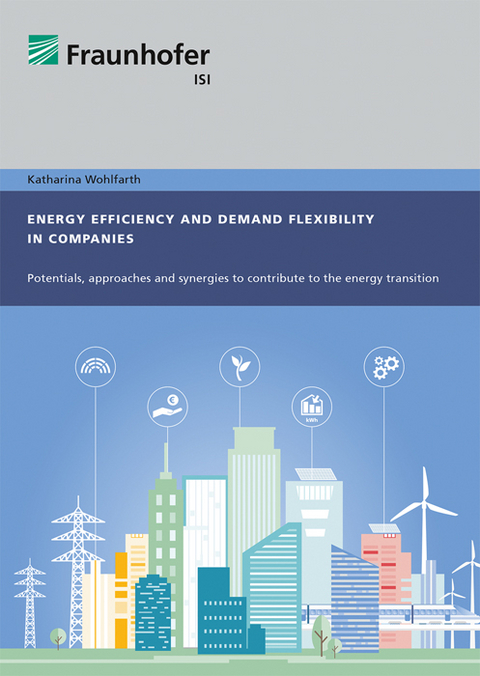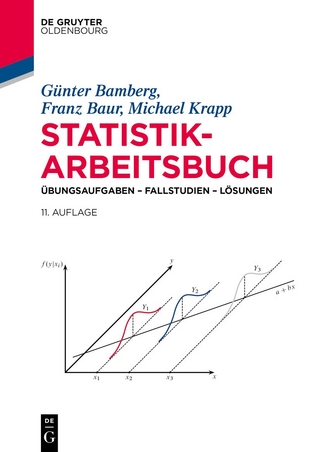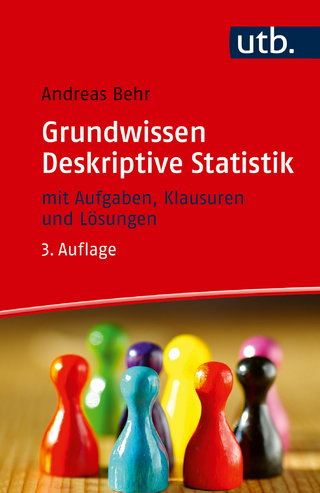
Energy efficiency and demand flexibility in companies
Seiten
2019
Fraunhofer Verlag
978-3-8396-1501-0 (ISBN)
Fraunhofer Verlag
978-3-8396-1501-0 (ISBN)
- Titel ist leider vergriffen;
keine Neuauflage - Artikel merken
Energy efficiency and demand flexibility are two key strategies to meet the challenges posed by the energy transition. This study focuses on how companies can contribute to the energy transition by improving energy efficiency or via flexibility of demand and also involves the synergies between the two. Using an interdisciplinary approach, the analytical dimensions of organisational, technical, behavioural, economic and external factors are taken into account to identify target groups, success factors and potentials of energy efficiency and demand response.
Energy efficiency and demand flexibility are two key strategies to meet the challenges posed by the energy transition. The companies' high share of total energy consumption suggests that these can make a contribution, but their potentials are still far from being exhausted. This study focuses on how companies can contribute to the energy transition by improving energy efficiency or via flexibility of demand and also involves the synergies between the two. Using an interdisciplinary approach, the analytical dimensions of organisational, technical, behavioural, economic and external factors are taken into account to identify target groups, success factors and potentials of energy efficiency and demand response. Among the key achievements is a detailed estimation of demand response potentials in the service sector on the level of subsectors and appliances. The combination of different methodologies allows for the assessment of the deployable flexibility and the improvement of a modelling approach with empirical survey data on the companies' willingness to participate in demand response. The thesis has resulted in a comprehensive set of influencing factors for demand flexibility, comparable to existing typologies for barriers to energy efficiency. An analysis of established energy efficiency policies showed possibilities for transferring these to demand response and may thus lead to synergies of the two.
Energy efficiency and demand flexibility are two key strategies to meet the challenges posed by the energy transition. The companies' high share of total energy consumption suggests that these can make a contribution, but their potentials are still far from being exhausted. This study focuses on how companies can contribute to the energy transition by improving energy efficiency or via flexibility of demand and also involves the synergies between the two. Using an interdisciplinary approach, the analytical dimensions of organisational, technical, behavioural, economic and external factors are taken into account to identify target groups, success factors and potentials of energy efficiency and demand response. Among the key achievements is a detailed estimation of demand response potentials in the service sector on the level of subsectors and appliances. The combination of different methodologies allows for the assessment of the deployable flexibility and the improvement of a modelling approach with empirical survey data on the companies' willingness to participate in demand response. The thesis has resulted in a comprehensive set of influencing factors for demand flexibility, comparable to existing typologies for barriers to energy efficiency. An analysis of established energy efficiency policies showed possibilities for transferring these to demand response and may thus lead to synergies of the two.
| Erscheinungsdatum | 25.09.2019 |
|---|---|
| Zusatzinfo | zahlr. Tab. |
| Verlagsort | Stuttgart |
| Sprache | englisch |
| Maße | 165 x 232 mm |
| Themenwelt | Wirtschaft ► Volkswirtschaftslehre ► Ökonometrie |
| Schlagworte | appliance • appliances • B • Behavioural Economics • companies • Company • Demand flexibility • demand response • Drivers and barriers • Electrical Engineering • energy efficiency • Fraunhofer ISI • Ingenieur • Ingenieure • Interdisciplinary Study • organizational theory & behaviour • Policy • Psychologe • Psychologen • Studierende • Wirtschaftsingenieur • Wirtschaftsingenieure • Wirtschaftswissenschaftler • Wissenschaftler |
| ISBN-10 | 3-8396-1501-1 / 3839615011 |
| ISBN-13 | 978-3-8396-1501-0 / 9783839615010 |
| Zustand | Neuware |
| Haben Sie eine Frage zum Produkt? |
Mehr entdecken
aus dem Bereich
aus dem Bereich
Übungsaufgaben – Fallstudien – Lösungen
Buch | Softcover (2022)
De Gruyter Oldenbourg (Verlag)
24,95 €
mit Aufgaben, Klausuren und Lösungen
Buch | Softcover (2023)
UTB (Verlag)
24,90 €
Set aus Lehr- und Arbeitsbuch
Buch | Softcover (2022)
De Gruyter Oldenbourg (Verlag)
35,95 €


